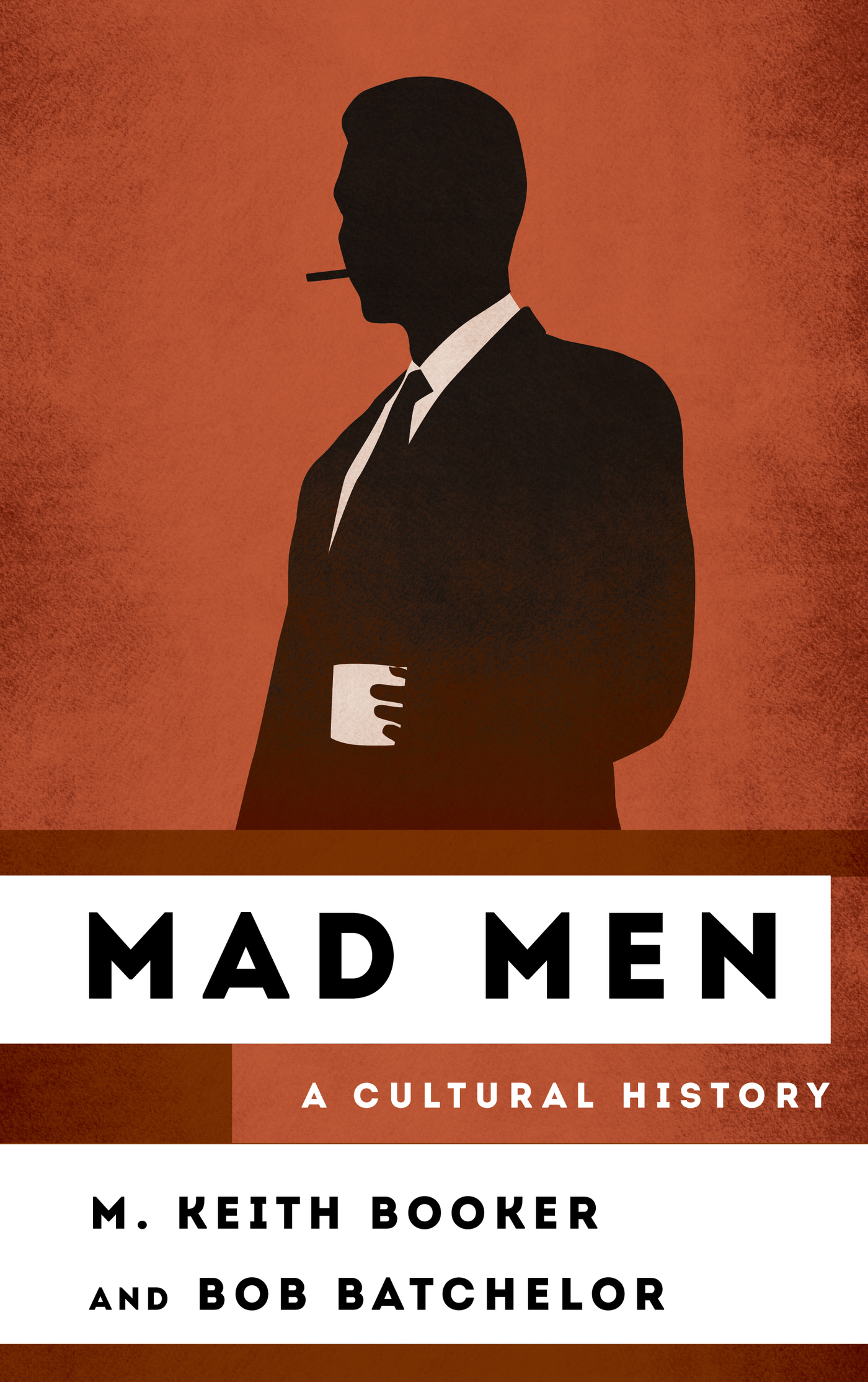Mad Men
The Cultural History of Television
Series Editors: Bob Batchelor, M. Keith Booker, Kathleen M. Turner
Mad Men: A Cultural History, by M. Keith Booker and Bob Batchelor
Mad Men
A Cultural History
M. Keith Booker
Bob Batchelor
ROWMAN & LITTLEFIELD
Lanham Boulder New York London
Published by Rowman & Littlefield
A wholly owned subsidiary of The Rowman & Littlefield Publishing Group, Inc.
4501 Forbes Boulevard, Suite 200, Lanham, Maryland 20706
www.rowman.com
Unit A, Whitacre Mews, 26-34 Stannary Street, London SE11 4AB
Copyright 2016 by Rowman & Littlefield
All rights reserved. No part of this book may be reproduced in any form or by any electronic or mechanical means, including information storage and retrieval systems, without written permission from the publisher, except by a reviewer who may quote passages in a review.
British Library Cataloguing in Publication Information Available
Library of Congress Cataloging-in-Publication Data
Names: Booker, M. Keith, author. | Batchelor, Bob, author.
Title: Mad Men : a cultural history / M. Keith Booker and Bob Batchelor.
Description: Lanham, Maryland : Rowman & Littlefield, 2016. | Series: The cultural history of television | Includes bibliographical references and index.
Identifiers: LCCN 2015039815| ISBN 9781442261457 (hardback : alk. paper) |
ISBN 9781442261464 (ebook)
Subjects: LCSH: Mad men (Television program)
Classification: LCC PN1992.77.M226 B66 2016 | DDC 791.45/72dc23 LC record available at http://lccn.loc.gov/2015039815
 TM The paper used in this publication meets the minimum requirements of American National Standard for Information Sciences Permanence of Paper for Printed Library Materials, ANSI/NISO Z39.48-1992.
TM The paper used in this publication meets the minimum requirements of American National Standard for Information Sciences Permanence of Paper for Printed Library Materials, ANSI/NISO Z39.48-1992.
Printed in the United States of America
For you-know-who. You know why.
Keith
To my parents, Jon and Linda Bowen, for all your love and support.
To Suzette, for everything and more.
And to Kassandra Dylan, as always, the center of my life!
Bob
Acknowledgments
I feel fortunate to have a fantastic group of mentors and friends who I can turn to when writing a book becomes tough and needs discussion to fight through the difficulties. My deepest thanks go to Keith Booker, my coauthor on this Mad Men journey. Keith has long been an inspiration to me and countless other scholars. Our collaboration has helped me grow tremendously as a writer and thinker.
Others have provided so much more than I could include here: Phillip Sipiora, Don Greiner, Gary Hoppenstand, and Lawrence Mazzeno. Thank you for being wonderful role models and guides. Many friends offered cheer along the way, including Chris Burtch, Larry Leslie, Kelli Burns, Thomas Heinrich, Gene Sasso, Bill Sledzik, Josef Benson, Ashley Donnelly, Jesse Kavadlo, Sarah McFarland Taylor, Heather and Rich Walter and family, and Tom and Kristine Brown. I have been lucky to have many fantastic mentors, whom I would like to thank: Lawrence S. Kaplan, James A. Kehl, Sydney Snyder, Richard Immerman, Peter Magnani, and Anne Beirne. I benefit from a secret team of like-minded scholars: Brendan Riley, Brian Cogan, Kathleen Turner, Norma and Brent Jones, and Leigh Edwards! I would also like to thank my new Miami University colleagues.
This book launches the Rowman & Littlefield Cultural History of Television book series that I edit, along with Keith and Kathleen. We have a great lineup of books ahead that will explore and assess the role of television programming on American cultural history. Thanks to Stephen Ryan, our senior editor atRowman & Littlefield, for promoting and helping get the series launched. Stephens constant support and friendship have been crucial. Thanks to the creative team at Rowman & Littlefield for their work on this book, especially the design team that created the outstanding cover.
My family is incredibly supportive considering what writing books means for ones time and energy. Thanks to my parents, Jon and Linda Bowen, for everything they do to make our lives infinitely better. Finally, Kassie is my inspiration, hope, and joy no matter what. I am blessed to have such a wonderful daughter!
Bob Batchelor
Introduction: A Mad Age
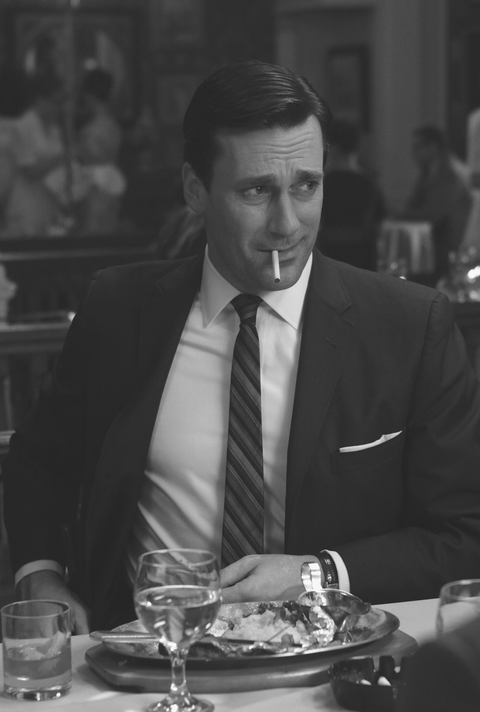
Don Draper, c. 1962. AMC/Photofest AMC
When Mad Men premiered on the AMC cable channel on July 19, 2007, it had already been seven years since series creator and showrunner Matthew Weiner wrote the initial script for the pilot. In the meantime, though, that script had garnered the attention of Sopranos creator and showrunner David Chase, leading Chase to hire Weiner as a writer for that show. The Sopranos not only gave Weiner an opportunity to develop his writing skills (previously he had been a writer for the Ted Danson sitcom Becker and some other minor television shows), but also helped to change the landscape of American television, ushering in the quality television revolution and helping cable television to gain an unprecedented prominence as a venue for that revolution.
Mad Men would become a key element of that revolution, eclipsing even The Sopranos in terms of awards and recognition, winning the Primetime Emmy Award for Outstanding Drama Series in each of its first four seasons. (The Sopranos won only two Primetime Emmys for Outstanding Drama, though it does have the distinction of having been nominated in the Outstanding Drama Series category every year that it was eligible and having been the first cable series to win the award.) Fame tends to be fleeting in the world of television, of course, and whether Mad Men will challenge The Sopranos in terms of its ongoing critical reputation remains to be seen. In any case, Mad Men, which ran for seven seasons spanning nearly eight years (AMC broadcast the finale on May 17, 2015), stands as one of the most talked-about and written-about series of its time and seems likely to be remembered as an important part of American cultural history long after most of its contemporaries have been mostly forgotten.
Mad Men and the 1960s in American
Cultural History
First and foremost, Mad Men drew both popular and critical attention for its vivid evocation of the 1960s, one of the most important decades in American cultural history. From the Kennedy-Nixon electoral campaign of 1960, to the Kennedy assassination of 1963, to the Chicago police riots of 1968, to the Apollo 11 moon landing of July 1969, well-remembered events of the 1960s provide vivid background to the experiences of Don Draper, Peggy Olson, Joan Holloway Harris, Roger Sterling, and the other characters of Mad Men, who collectively represent one of the most interesting groups to have appeared on American television since the crew of the starship Enterprise in the 19661969 airing of the original Star Trek (which, of course, also features in Mad Men). Mad Men engages in an extensive dialogue with the history of the 1960s, and the events of the series are keyed to contemporary events in their larger world to an extent that has seldom been rivaled in American television. Indeed, the events of

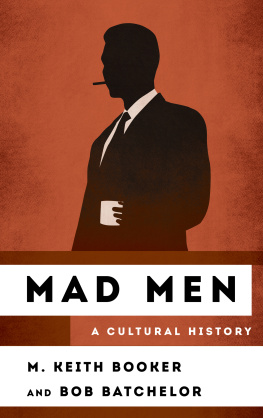
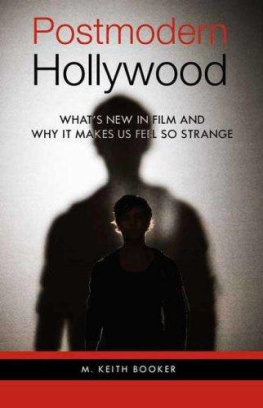

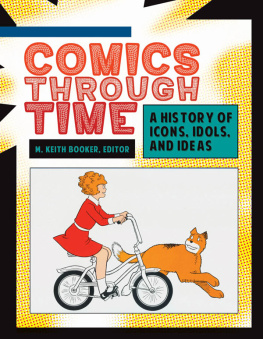
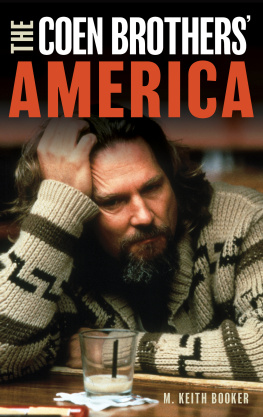

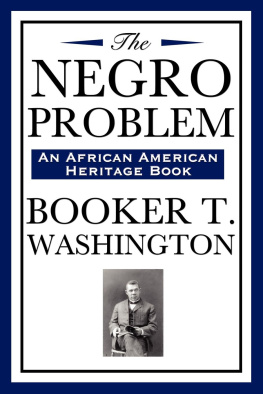
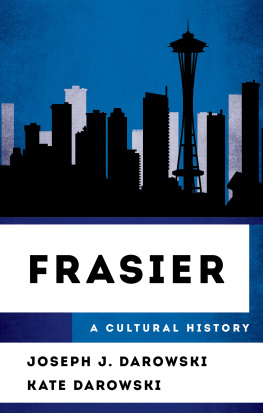
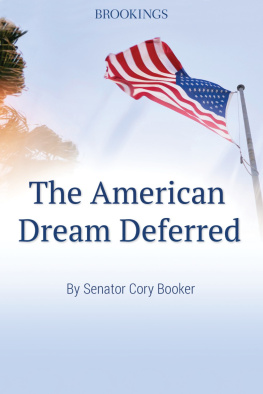
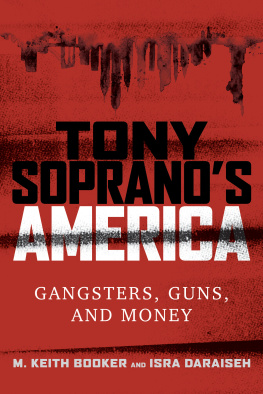

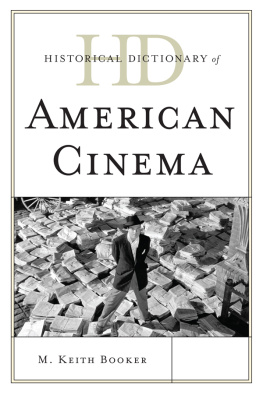
 TM The paper used in this publication meets the minimum requirements of American National Standard for Information Sciences Permanence of Paper for Printed Library Materials, ANSI/NISO Z39.48-1992.
TM The paper used in this publication meets the minimum requirements of American National Standard for Information Sciences Permanence of Paper for Printed Library Materials, ANSI/NISO Z39.48-1992.